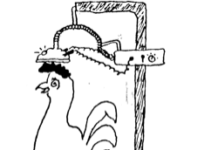For The Love of Horses
By Frank J. Buchman
Horses can be especially therapeutic in today’s distressed world environment.
Yet, efforts to help others realize such positives have taken a harsh wrong turn for one Black horseman.
Adam Hollingsworth’s attempts to spread a positive message on horseback in Chicago have been widely misinterpreted.
According to news reports, Hollingsworth came under fire in late May as police brutality protests began around the country.
A video of Hollingsworth on horseback wearing a bulletproof vest attracted wide social media attention. Connotation for some reason derived that he had stolen a policeman’s horse.
Hollingsworth, 33, is no thief, but riding his horse Prince around Chicago he’s become known as the Dreadhead Cowboy.
Best clarify “dreadhead” is description sometimes given a person with “dreadlocks,” also called “dreads.” Urban dictionaries define “dreadlocks” as a “style created by allowing the hair to matt into locks.”
Furthering Hollingsworth’s horseback therapy dilemma, “dreadlocks are sometimes thought to be disgusting and frightening.”
Actually far from the way it is. “You have to have some kind of experience to get on a horse to ride it,” Hollingsworth declared.
“You just don’t steal a police horse, it’s like kidnapping a police officer,” Hollingsworth defended the false social media accusations. “You can’t just get up and steal a police horse.”
Even receiving death threats, Hollingsworth became more determined to ride his horse in the city.
Urgency became foremost to promote a message of unity in some of Chicago’s most racially segregated neighborhoods.
“When this pandemic came about and everyone was depressed, I thought horses would be a form of therapy,” Hollingsworth said.
“Maybe horses can help the other people, too. It’s not just about me,” he insisted. “Everything I’m doing is for the future.”
He has become a fixture at protests and rallies around Chicago.
Hollingsworth grew up in Woodlawn, nearly 83 percent-Black neighborhood on Chicago’s south side, proposed site of the Obama Presidential Center.
Horseback riding didn’t come into Hollingsworth’s life until adulthood after a wrongful conviction for gun possession.
“I don’t play with guns,” he insisted. “I’m not that kind of guy.” But when his car was pulled over in 2006, someone riding with Hollingsworth did have a gun,
“I was 19, and the policeman said, ‘You’re the oldest, it’s your gun.’”
Unable to pay bail, Hollingsworth spent a month in jail, pleaded guilty and received a sentence of probation.
Focused on staying out of trouble, Hollingsworth finally found work. He bought his first horse, Wi-Fi, nine years later for $800 during a period of severe depression.
“My horse was my therapy,” Hollingsworth acknowledged. Over time, one horse became four that he keeps at his uncle’s place in a Chicago suburb.
“When this pandemic came about and everyone was depressed, I thought maybe horses can help them too,” he said.
During lockdown, Hollingsworth began riding around Chicago’s Black and Latino communities to bring joy to residents, especially young children.
“I didn’t have my father in my life,” he said. “To have a kid say I’m their hero, it melts my heart.”
His son, Akil, 12, has begun referring to himself as the Dreadhead Cowboy Jr. Some adults have told him it is their first time seeing a horse in real life.
“You’ve never seen a horse in the ’hood,” Hollingsworth said.
It is not unusual for onlookers to question Hollingsworth’s ownership of his horse. “They always ask if I’m a police officer. They ask if I got money. If I steal it. How I get it,” he said.
“You could be the ‘brokest’ guy in the world,” Hollingsworth continued. “But you pull up on a horse in a Black community and everyone thinks you’re rich.”
Fallout from the negative posts about Hollingsworth and Prince left him scared and concerned how quickly bad information travels online.
“People be sharing posts and not be doing their own investigations,” he said. “The first time I see something, I do research.”
Working to give back to his community, Hollingsworth said, “I’m trying to put a barn in the Woodlawn area.” A substantial fund has already been established.
As for the virus, Hollingsworth is not afraid. He has been taking all the recommended precautions.
“I’m social distancing being on top of my horse,” Hollingsworth said. “Being a Black man, I’m taking a chance every day by stepping outside.”
CUTLINES
Adam Hollingsworth and his horse Prince have participated in rallies promoting unity in some of Chicago’s most racially segregated neighborhoods. (Danielle Scruggs photo)
Horses can provide a form of therapy for those depressed and miserable from the pandemic, according to Adam Hollingsworth.(Danielle Scruggs photo)




